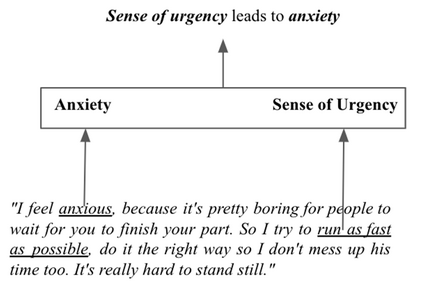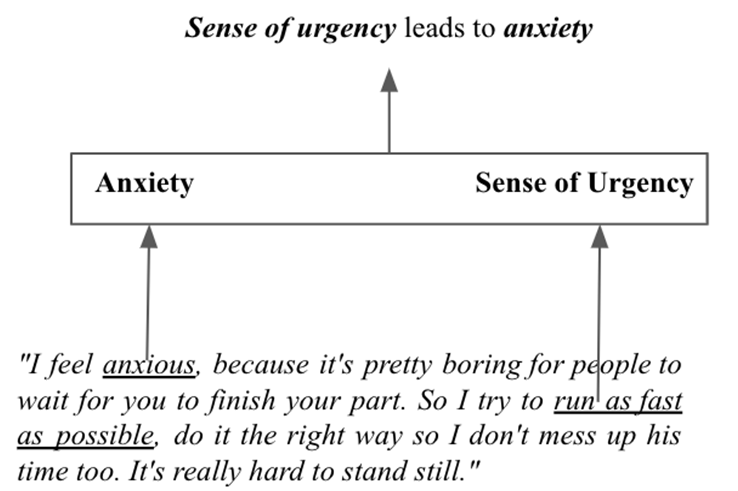Context: Task interdependence is a work design factor that expresses the mutual dependency between tasks that compose a whole work. In software development, task interdependencies are created by the technical dependencies between the components of the software system and by how the development tasks are allocated to individuals in a teamwork context. Despite its importance for individual and team effectiveness, we still do not have studies about how software engineers perceive task interdependence in practice. Goal: To understand the perceptions of software engineers about the interdependence in their work and how these perceptions interact with other human and technical factors in the development process. Method: We performed an exploratory qualitative case study of a single software development team in a Brazilian software company that developed solutions for the financial market. We interviewed all 10 team members and used standard coding techniques from qualitative research to code, categorize, and synthesize data. Results: Individuals are consistent in their understanding of task interdependence and how it happens in practice. However, there are asymmetries between the individual perceptions in an interdependence relationship, which seem to exacerbate expressed feelings of anxiety and dissatisfaction. Conclusion: Our results suggest that the perception of task interdependence in software development is often not symmetrical with potential negative effects on emotional states that are related to motivation and satisfaction in the workplace.
翻译:背景:任务依赖是一个工作设计因素,它表达了构成整个工作的任务之间的相互依赖关系。在软件开发中,任务相互依赖关系是由软件系统组件之间的技术依赖和在团队协作环境中分配开发任务的方式所创建的。尽管它对于个人和团队的有效性非常重要,但我们仍然没有关于软件工程师如何实际感知任务相互依赖关系的研究。目标:了解软件工程师对他们的工作中相互依赖关系的感知以及这些感知如何与其他人类和技术因素在开发过程中交互作用。方法:我们对巴西一家为金融市场提供解决方案的软件公司的一个开发团队进行了探索性的定性案例研究。我们采访了所有10名团队成员,并使用定性研究的标准编码技术对数据进行编码、分类和综合。结果:个人在理解任务相互依赖关系及其在实践中发生的方面上是一致的。然而,在相互依赖的关系中,个体感知之间存在不对称现象,这似乎加剧了对焦虑和不满感受的表达。结论:我们的研究结果表明,软件开发中任务相互依赖的感知往往不对称,这可能对与动机和工作满意度相关的情绪状态产生负面影响。







